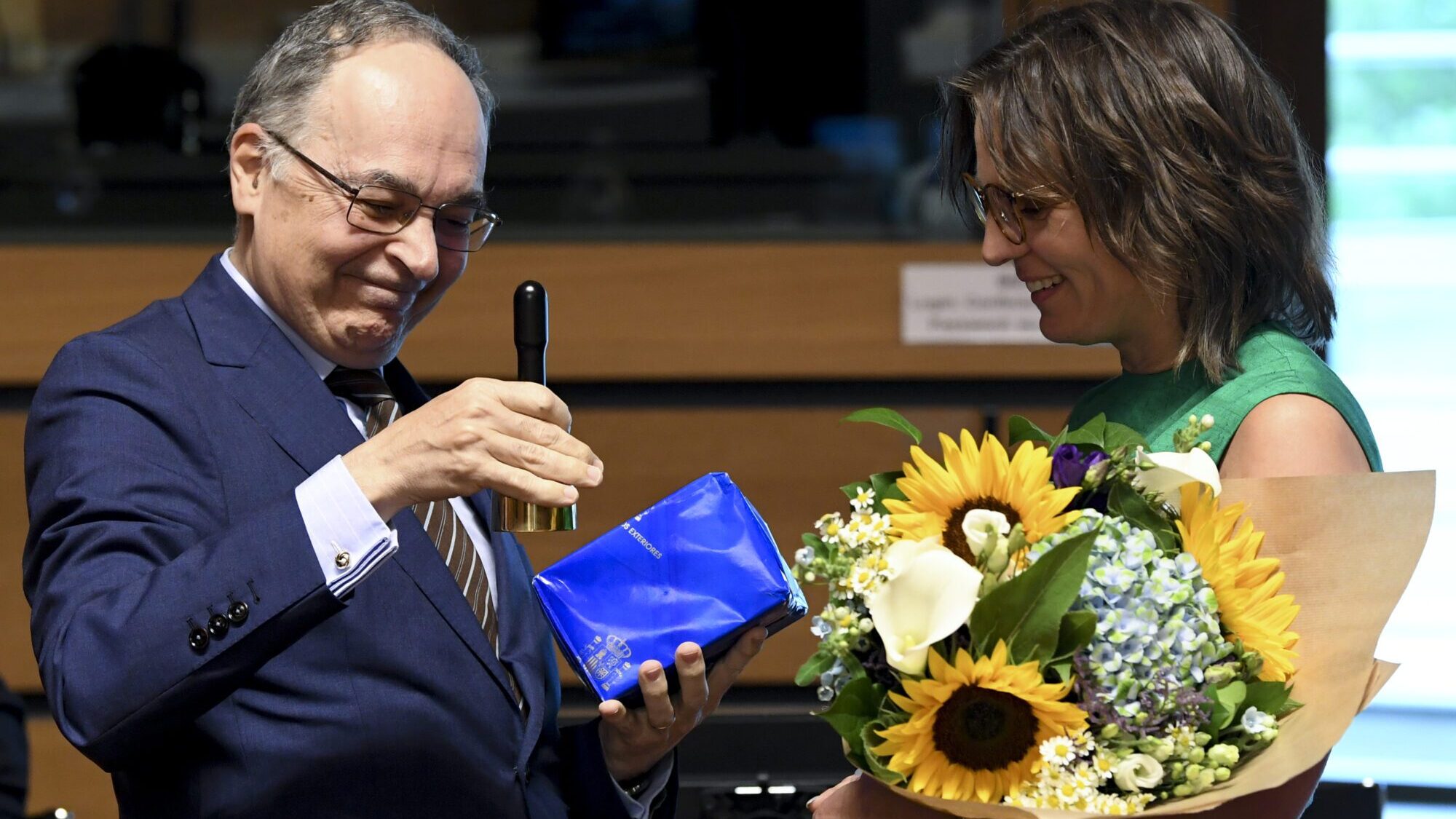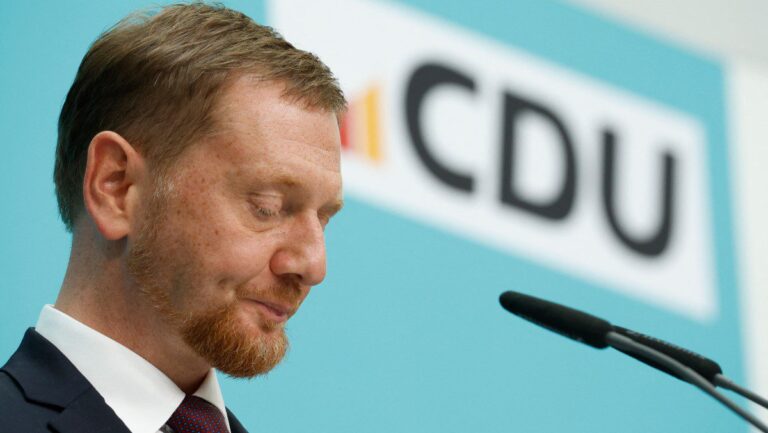With Sweden’s turn at the helm of the European Council ending in a few days, the incoming presidential trio made up of Spain, Belgium, and Hungary is actively preparing to take charge of Brussels for the next 18 months. The three countries presented their shared program during the Swedish presidency’s last Council meeting between EU affairs ministers on Tuesday, June 27th, promising to focus on global competitiveness, making sure the green and digital transitions are fair, and strengthening Europe’s security capabilities and geopolitical standing.
What’s a ‘trio’?
While every EU country has equal weight in the Council (except in qualified majority voting, where larger member states have a slight advantage), each of them also gets to assume presidency over the body for six months every thirteen-and-a-half years, which comes with important representative roles and the ability to set and influence the EU agenda to a certain degree.
Council presidencies also come in so-called ‘trios,’ made up of the three countries assuming the role consecutively, which are expected to present and implement a common program of EU priorities during their term, lasting one and a half years.
It’s not only the Swedish presidency that comes to an end on July 1st, but also the mandate of the previous trio, giving way for the next, which includes Spain, Belgium, and Hungary—in this order. The last general affairs meeting hosted by an outgoing presidency is traditionally reserved for the transition and also includes presenting the program of the incoming presidency, or, as in this case, the entire trio up until December 2024.
#GAC is over! EU 🇪🇺 ministers discussed:
— EU Council (@EUCouncil) June 27, 2023
☑️ Next #EUCO: Ukraine, economy, security & defence ☑️ European electoral law
☑️ 18-month Council work programme, prepared by next presidency trio: Spain 🇪🇸 Belgium🇧🇪 Hungary🇭🇺
For more info 👉 https://t.co/7J3uL1vOq6 pic.twitter.com/nbmdFqgQLW
Clear priorities
According to the program of the Spanish-Belgian-Hungarian presidential trio, the group aims to focus on three key areas during their terms, all of which are meant to enhance Europe’s resilience and strategic autonomy during these times of “global uncertainty.”
The three main priorities include reinforcing the EU’s global competitiveness (by investing in industry, innovation and accelerating the green and digital transitions); ensuring that these transitions are “fair, just, and inclusive” by enhancing their social dimensions and addressing demographic challenges; as well as strengthening international partnerships and building up “an ambitious trade policy,” while at the same time “defending EU interests more assertively,” based on common values and complemented by enhanced security and defense capabilities.
The document also adds that the trio will contribute to the discussion about future EU enlargements and how to integrate new members properly, as well as focus on maintaining the dialogue with EU citizens when designing their policy positions.
Now to the fine print
Digging a bit deeper, the agenda provides more details about specific policy areas too. Regarding the new Asylum and Migration Pact, the trio promises to “make every effort to ensure [its] adoption,” but it also aims to achieve “the right balance between solidarity and responsibility” (expect a more nuanced take on the migrant relocation scheme), “step up actions on the external dimension of migration” (court third countries to reduce the flow of migrants), and strengthen external borders of the Schengen area, which means that direct EU funding for border walls might not be too far down the line.
Within the green transition area, the trio pledged its unwavering support for the EU’s “Fit for 55” climate neutrality plan, as well as Brussel’s controversial nature restoration initiative, promoting sustainable means of transportation and clean, yet affordable, energy alternatives. However, the document also stresses that the three countries will regard the fair and inclusive implementation of these policies as their priority, to make sure the poorer countries and communities don’t get left behind.
Similarly, the document underlines that they will take a “human rights-based approach” to digital transformation, making sure that innovation in the area—including AI—remains inclusive and that European customers and their data stay protected. That being said, the trio will also “take work forward on a digital euro and access to financial data,” as well as foster the implementation of 5G and 6G technologies in line with the 2030 Digital Decade targets.
Finally, from a geopolitical perspective, the next one and a half years will be about the “unwavering and continued” political, financial, and military support of Ukraine, “for as long as it takes,” as well as “helping the rest of the world cope with the consequences of Russia’s war in Ukraine.”
Specifically, this will mean increased diplomatic engagement in the third world, including Latin America, Central Asia, and Africa; helping EU candidate countries in the West Balkans and Eastern Europe financially to fulfill their accession criteria sooner; and focusing on deeper strategic partnerships with the UK, Switzerland, and Turkey, among others.
In all diplomatic efforts, the document writes, the trio will encourage a “Team Europe” approach for better outreach and visibility—even though it’s hard to imagine all member states being on the same page on anything, much less foreign policy.
In security, the plan is basically ramping up the bloc’s defense production capabilities and launching more joint defense procurement projects, as well as linking EU security strategies more closely to NATO’s and increasing the EU’s peace-keeping presence in UN-backed third-country missions.
Let’s take a step back
It’s clear that ambitions are high, just as they should be. But we must also note that the incoming trio is made up of three highly different countries with highly different legislative priorities. Their common program contains only as much as they can vaguely agree on from the start, but each of their presidencies will feature unique priorities that will not necessarily be shared by the other two.
For now, all eyes are on Spain, which assumes the presidency on July 1st. Madrid will have a historic opportunity to highlight a number of relevant topics and use its amplified voice to Spain’s advantage, but—wrote one of our analysts in March—it will likely miss most of it.
Finally, during the presentation on Tuesday, the elephant in the Council chamber was definitely Hungary, as certain member states have been conspiring with the European Parliament to prevent Budapest from taking up the presidency for the past several weeks, although they do not have much to show for it. If this presentation of the trio’s agenda shows anything in this regard, it’s that those plans were baseless wishful thinking from the Left’s side from the start and that EU treaties don’t let you take anyone’s term just because you don’t like them.
Today is a big day for the whole of #Europe, as today we present the programme and priorities of the Spanish-Belgian-Hungarian trio Presidency! 🇭🇺🇪🇺 pic.twitter.com/sONo3FX5Z0
— Judit Varga (@JuditVarga_EU) June 27, 2023





